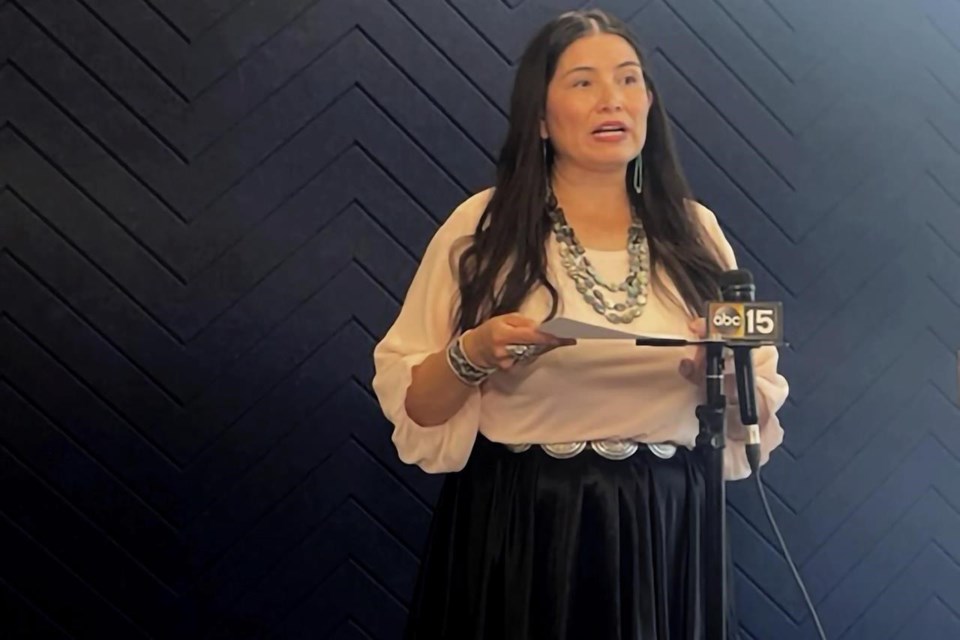PHOENIX (AP) — Navajo law enforcement teams made contact with several hundred Native Americans from various tribes who are living on the streets in the metro Phoenix area, after the and suspended unlicensed sober living homes, Navajo Nation Attorney General Ethel Branch said Monday.
Teams that included Navajo police officers reported making contact with more than 270 Native Americans, the majority of them Navajo, Branch said.
Many tribal members accepted offers to stay in motel rooms or other temporary housing for a few days before moving to legitimate facilities, while others agreed to return home to their reservations, Branch said. The teams worked with local police agencies and Community Bridges, Inc., a nonprofit that provides services for people with addictions.
“Unfortunately, many of our relatives when they came out of these facilities didn't have cell phones,” Branch said, adding that Navajo police officers allowed the people they found to use their own cell phones to call their families.
While the Navajo law enforcement teams have returned to the reservation for now, the tribe will maintain its presence in Phoenix through an operations center.
In response to Arizona's announcement last month it was cutting off Medicaid funding to more than 100 unlicensed and fraudulent sober living homes, most of them in metro Phoenix, the Navajo Nation launched its . The targeted homes are closing, leaving many people who had sought professional help to overcome their addictions with nowhere to live.
The Operation Rainbow Bridge toolbox includes a and a TikTok account now under construction. There’s also a 211 hotline that the tribe is advertising among its members that allows those affected to find a place to stay and get the services they need.
Navajo officials say that in some cases, people who ended up in the homes were picked up in unmarked vans and driven to the Phoenix area from faraway places on the sprawling Navajo Nation that stretches across northern Arizona, and parts of New Mexico and Utah. It's unclear who paid to transport the people to homes.
The Arizona Health Care Cost Containment System, which oversees the state’s Medicaid programs, had been paying out money for addiction and other mental health services that state officials say the homes billed for, but never delivered, under the American Indian Health Program.
State officials believe the fake homes have defrauded Arizona out of hundreds of millions of its share of federal Medicaid dollars. Arizona authorities so far have seized $75 million and have issued 45 indictments in the investigation that also includes the FBI and the U.S. Attorney General’s Office.
Arizona officials have said hundreds of fake sober living homes are believed to be currently operating in the Phoenix area and other parts of the state.
Anita Snow, The Associated Press




